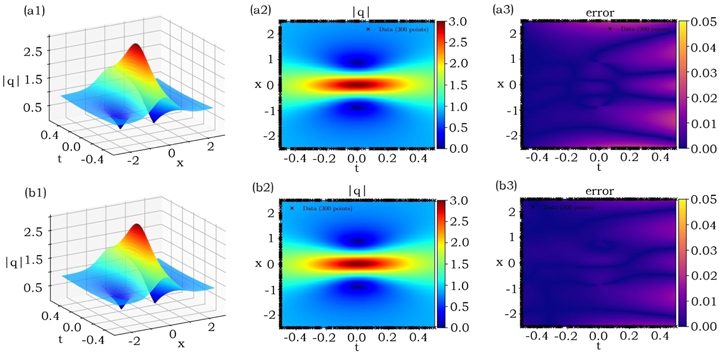Deep learning neural networks for the third-order nonlinear Schrödinger equation: bright solitons, breathers, and rogue waves

|
Deep learning neural networks for the third-order nonlinear Schrödinger equation: bright solitons, breathers, and rogue waves |
| Zijian Zhou,Zhenya Yan |
| Figure 4. Learning rogue wave solution related to equation ( |

|